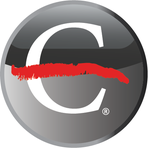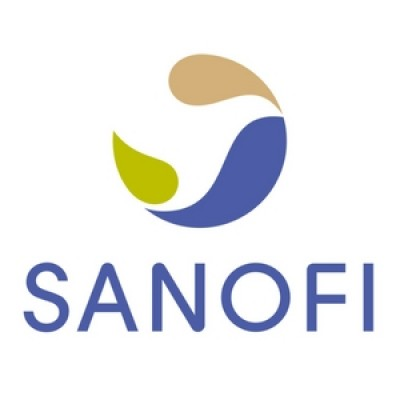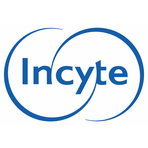Innovent Biologics: Pioneering New Frontiers in Cancer Treatment
September 19, 2024, 4:25 am

Location: United States, Texas, Houston
Employees: 10001+
Founded date: 1944
Total raised: $3.34M
In the world of oncology, the quest for effective treatments is relentless. Innovent Biologics, a biopharmaceutical company based in China, is at the forefront of this battle. Recently, they presented groundbreaking clinical data at the 2024 ESMO Congress, showcasing two innovative therapies: IBI354 and IBI363. These therapies are not just numbers and percentages; they represent hope for patients grappling with advanced cancers.
IBI354 is a HER2-targeted antibody-drug conjugate. It’s a complex name for a simple idea: delivering potent drugs directly to cancer cells. This approach minimizes damage to healthy cells, a common side effect of traditional chemotherapy. The clinical trial involved 368 participants with various advanced solid tumors, including breast and ovarian cancers. The results were promising. In the cohort of patients with platinum-resistant ovarian cancer, the overall objective response rate (ORR) was 40.2%. For those receiving a higher dose, the ORR soared to 52.5%. These numbers are not just statistics; they signify lives potentially saved or extended.
The safety profile of IBI354 is equally impressive. Adverse events were mild, with only 1.6% of patients experiencing interstitial lung disease, all grade 1. This is a breath of fresh air in a field where side effects can often overshadow benefits. The data suggests that IBI354 could become a cornerstone in treating HER2-positive cancers, particularly for patients who have exhausted other options.
Next on the horizon is IBI363, a first-in-class bispecific antibody fusion protein. This therapy combines the power of PD-1 blockade with IL-2 activation. In simpler terms, it’s designed to enhance the immune response against tumors. The Phase 1 study included 35 subjects with advanced colorectal cancer, a disease notorious for its resistance to treatment. Here, the ORR was 21.9%, with a disease control rate (DCR) of 65.6%. For patients with liver metastases, the results were more modest, but still noteworthy. The ORR was 11.8%, while those without liver metastases saw a more encouraging 33.3%.
What sets IBI363 apart is its dual mechanism of action. By blocking PD-1, it prevents cancer cells from evading the immune system. Simultaneously, it activates IL-2, a cytokine that boosts the immune response. This combination is like giving the immune system a double shot of espresso. It’s a strategic move in a landscape where many therapies fail to engage the immune system effectively.
The safety profile of IBI363 is also commendable. The most common treatment-related adverse events were manageable, including arthralgia and thyroid disorders. Importantly, no new safety signals emerged, suggesting that this combination therapy could be a viable option for patients who have previously undergone multiple lines of treatment.
The implications of these findings are profound. Colorectal cancer remains a leading cause of cancer-related deaths globally. Current treatments often fall short, especially for patients with microsatellite stable (MSS) tumors. IBI363 offers a glimmer of hope in this challenging arena. The combination of IBI363 with bevacizumab, a well-established anti-angiogenic therapy, could redefine treatment paradigms for advanced colorectal cancer.
Innovent’s commitment to innovation is evident. They are not just developing drugs; they are crafting solutions tailored to the needs of patients. The company’s strategic focus on antibody-drug conjugates and bispecific antibodies positions it as a leader in the oncology space. Their research extends beyond these two therapies, with ongoing studies exploring new combinations and indications.
As the landscape of cancer treatment evolves, so too does the role of companies like Innovent. They are not merely participants in the race; they are setting the pace. With a pipeline that includes multiple candidates in various stages of development, Innovent is poised to make significant contributions to oncology.
The road ahead is not without challenges. The complexities of cancer biology mean that no single treatment will be a panacea. However, the promising data from IBI354 and IBI363 suggests that Innovent is on the right track. These therapies could pave the way for more effective, targeted treatments that improve patient outcomes.
In conclusion, Innovent Biologics is a beacon of hope in the oncology landscape. Their innovative therapies, IBI354 and IBI363, are not just numbers on a page; they represent the potential for real change in the lives of patients battling advanced cancers. As they continue to push the boundaries of what’s possible, the future of cancer treatment looks brighter than ever. The journey is ongoing, but with each step, Innovent is making strides toward a world where cancer is not just managed, but conquered.
IBI354 is a HER2-targeted antibody-drug conjugate. It’s a complex name for a simple idea: delivering potent drugs directly to cancer cells. This approach minimizes damage to healthy cells, a common side effect of traditional chemotherapy. The clinical trial involved 368 participants with various advanced solid tumors, including breast and ovarian cancers. The results were promising. In the cohort of patients with platinum-resistant ovarian cancer, the overall objective response rate (ORR) was 40.2%. For those receiving a higher dose, the ORR soared to 52.5%. These numbers are not just statistics; they signify lives potentially saved or extended.
The safety profile of IBI354 is equally impressive. Adverse events were mild, with only 1.6% of patients experiencing interstitial lung disease, all grade 1. This is a breath of fresh air in a field where side effects can often overshadow benefits. The data suggests that IBI354 could become a cornerstone in treating HER2-positive cancers, particularly for patients who have exhausted other options.
Next on the horizon is IBI363, a first-in-class bispecific antibody fusion protein. This therapy combines the power of PD-1 blockade with IL-2 activation. In simpler terms, it’s designed to enhance the immune response against tumors. The Phase 1 study included 35 subjects with advanced colorectal cancer, a disease notorious for its resistance to treatment. Here, the ORR was 21.9%, with a disease control rate (DCR) of 65.6%. For patients with liver metastases, the results were more modest, but still noteworthy. The ORR was 11.8%, while those without liver metastases saw a more encouraging 33.3%.
What sets IBI363 apart is its dual mechanism of action. By blocking PD-1, it prevents cancer cells from evading the immune system. Simultaneously, it activates IL-2, a cytokine that boosts the immune response. This combination is like giving the immune system a double shot of espresso. It’s a strategic move in a landscape where many therapies fail to engage the immune system effectively.
The safety profile of IBI363 is also commendable. The most common treatment-related adverse events were manageable, including arthralgia and thyroid disorders. Importantly, no new safety signals emerged, suggesting that this combination therapy could be a viable option for patients who have previously undergone multiple lines of treatment.
The implications of these findings are profound. Colorectal cancer remains a leading cause of cancer-related deaths globally. Current treatments often fall short, especially for patients with microsatellite stable (MSS) tumors. IBI363 offers a glimmer of hope in this challenging arena. The combination of IBI363 with bevacizumab, a well-established anti-angiogenic therapy, could redefine treatment paradigms for advanced colorectal cancer.
Innovent’s commitment to innovation is evident. They are not just developing drugs; they are crafting solutions tailored to the needs of patients. The company’s strategic focus on antibody-drug conjugates and bispecific antibodies positions it as a leader in the oncology space. Their research extends beyond these two therapies, with ongoing studies exploring new combinations and indications.
As the landscape of cancer treatment evolves, so too does the role of companies like Innovent. They are not merely participants in the race; they are setting the pace. With a pipeline that includes multiple candidates in various stages of development, Innovent is poised to make significant contributions to oncology.
The road ahead is not without challenges. The complexities of cancer biology mean that no single treatment will be a panacea. However, the promising data from IBI354 and IBI363 suggests that Innovent is on the right track. These therapies could pave the way for more effective, targeted treatments that improve patient outcomes.
In conclusion, Innovent Biologics is a beacon of hope in the oncology landscape. Their innovative therapies, IBI354 and IBI363, are not just numbers on a page; they represent the potential for real change in the lives of patients battling advanced cancers. As they continue to push the boundaries of what’s possible, the future of cancer treatment looks brighter than ever. The journey is ongoing, but with each step, Innovent is making strides toward a world where cancer is not just managed, but conquered.


